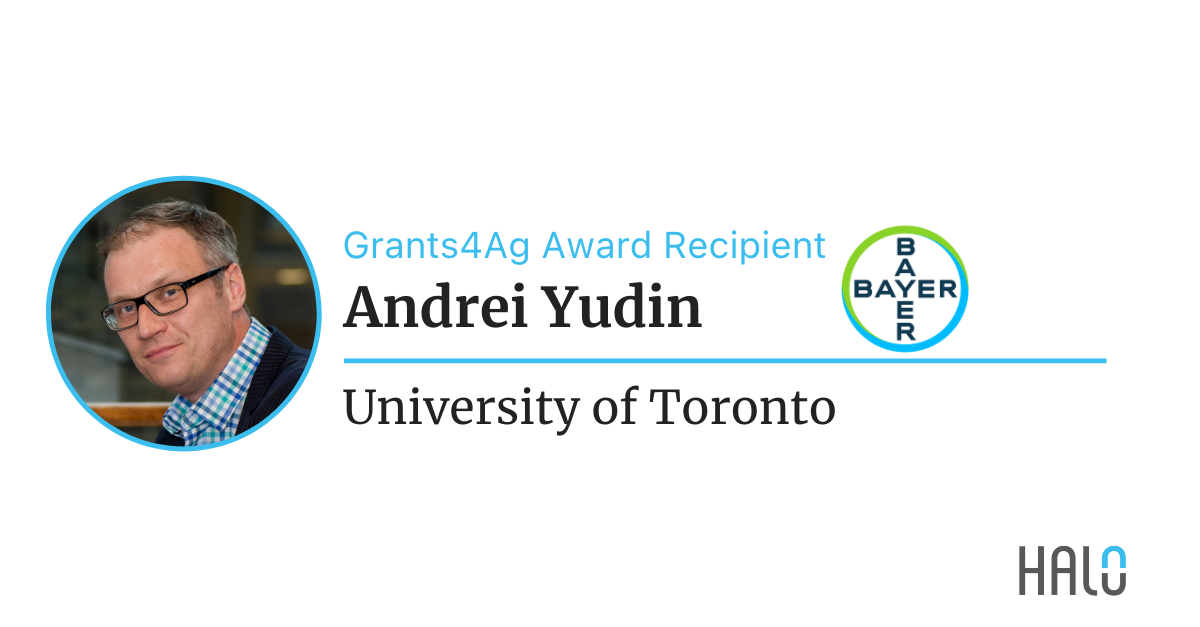Using chemical synthesis, new molecules can be generated. By harnessing this powerful capability, Dr. Andrei Yudin is researching ways to create new molecules that can interact with targeted plant enzymes. View Halo Profile >>
About Andrei Yudin
Dr. Andrei Yudin is a Tier I Canada Research Chair in Medicine by Design at the University of Toronto. Yudin is from Toronto, Canada and completed his PhD at the University of Southern California. He is involved with the American Chemical Society and the Royal Society of Chemistry.
Tell us about your research.
My research at the University of Toronto is aimed at the development of new synthetic chemistry tools. We study fundamental synthetic organic chemistry, reaction discovery, boron chemistry, and peptide macrocycles. The ultimate objective of these studies is production of new molecules with novel biological activity.
We study fundamental synthetic organic chemistry, reaction discovery, boron chemistry, and peptide macrocycles.
Can you explain that to a non-scientist?
My lab at the University of Toronto is engaged in chemical synthesis of molecules that are associated with therapeutic potential. This work is akin to what architects do when they think of assembling buildings, except in our case the building blocks are exceedingly small and we have to operate using tools that are invisible to the naked eye. However, chemical synthesis of this kind has been showing to have a lasting impact on society and this is why we are interested in pursuing this science.
Why did you choose this area of research?
We are interested in scientific challenges that hold societal significance and address unmet needs. Chemical synthesis of valuable molecules (be it human therapeutics or agrochemicals) is a fascinating direction and we particularly keen on it.
This work is akin to what architects do when they think of assembling buildings, except in our case the building blocks are exceedingly small and we have to operate using tools that are invisible to the naked eye.
What are some of the real-world applications of your work?
Production of therapeutics and materials that can be widely used in society are just a couple of applications of chemical synthesis currently practiced in our lab.


